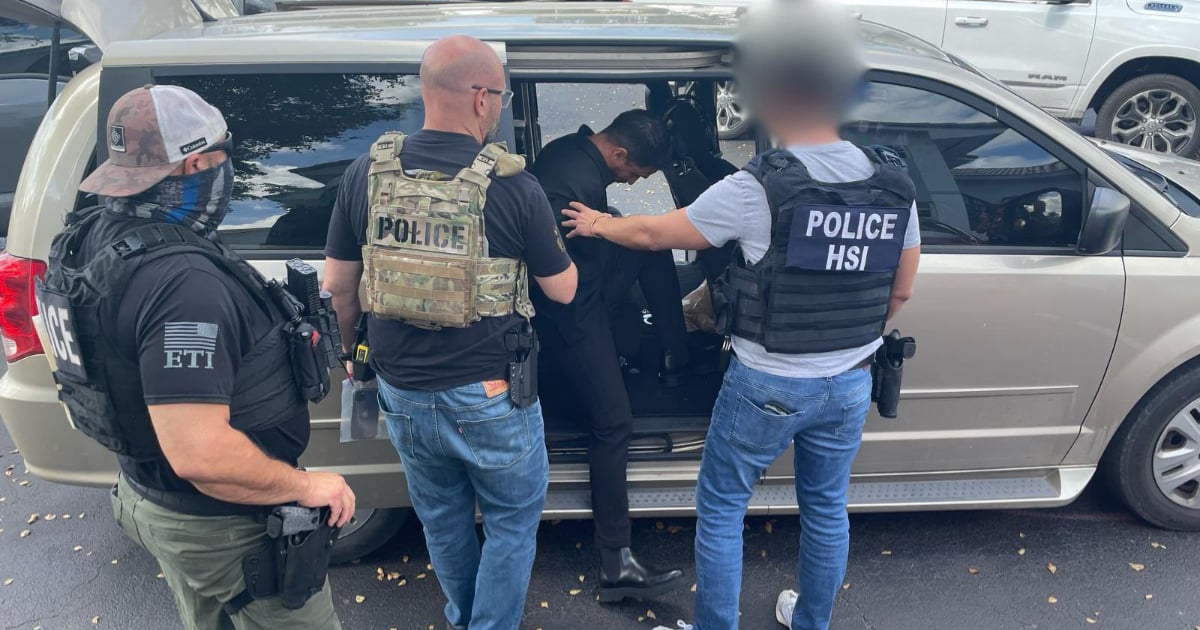This Monday, the United States Supreme Court granted the government permission to revoke the Temporary Protected Status (TPS) from approximately 350,000 Venezuelans, potentially leading to deportation proceedings for thousands of migrants. According to the Associated Press, the ruling overturns a previous decision by a federal judge in San Francisco that had maintained the TPS for Venezuelans, which was set to expire last month. The Supreme Court's decision was passed with just one dissenting vote.
The TPS is a legal provision that enables citizens from countries plagued by civil conflicts or natural disasters to legally reside and work in the United States, even if they lack other immigration statuses. The Supreme Court's decision revives the immigration agenda initiated during President Donald Trump's administration, which sought to end TPS for several nations, including Venezuela, Haiti, and Nicaragua.
While the ruling does not result in immediate deportations, it threatens the immigration stability of countless Venezuelan families who have built their lives in the U.S. under this program. Simultaneously, the government also requested the Supreme Court to terminate the humanitarian parole program benefiting hundreds of thousands of migrants from Cuba, Haiti, Nicaragua, and Venezuela, as reported by the AP. This move could similarly expose thousands to potential deportation.
The court has also been involved in other legal disputes, such as efforts to swiftly deport Venezuelans accused of gang affiliations using an old wartime law known as the Alien Enemies Act. NBC News reported that the Supreme Court addressed an emergency appeal filed by the Trump administration, aiming to overturn an extension of TPS approved in the final months of Joe Biden's presidency, which safeguarded over 300,000 Venezuelans.
The controversy centers on a subsequent TPS designation made in October 2023 and extended in January this year, just before Trump resumed office. This protection was originally slated to expire in October 2026, but the new action would allow it to lapse this year. In February, Secretary of Homeland Security Kristi Noem ordered the nullification of this extension, prompting a federal judge in California, Edward Chen, to block the measure, arguing potential racial animus. Chen cautioned that those affected faced "possible imminent deportation."
The government, represented by Solicitor General D. John Sauer, countered that Noem's decision was not subject to judicial review, a position temporarily upheld by the Supreme Court with only Justice Ketanji Brown Jackson dissenting.
Recently, President Donald Trump's administration filed an emergency appeal with the U.S. Supreme Court to overturn a judicial ruling that prevents the early termination of the humanitarian parole program. This program grants temporary legal status to more than 500,000 migrants from Cuba, Haiti, Nicaragua, and Venezuela. Initiated during President Joe Biden's administration, the program allowed individuals from these countries to enter the U.S. by air with financial backing and reside legally for two years with work authorization. However, it was one of the first programs reversed by Trump upon assuming office.
Last March, a federal judge in California temporarily halted the revocation of TPS for Venezuelans in the United States, a measure pushed by Trump's administration. This decision provided significant relief to Venezuelan migrants who were facing the threat of deportation starting in April. The measure automatically extended the validity of work permits (EAD) issued under categories A12 or C19, with expiration dates of September 10, 2025, April 2, 2025, March 10, 2024, or September 9, 2022.
Impact of Supreme Court Decision on Venezuelan Migrants
What is Temporary Protected Status (TPS)?
Temporary Protected Status (TPS) is a legal mechanism that allows citizens from countries affected by civil conflicts or natural disasters to reside and work legally in the United States, even if they lack other immigration documents.
How does the Supreme Court's decision affect Venezuelan migrants?
The Supreme Court's decision allows the government to terminate TPS for Venezuelans, potentially leading to deportation proceedings and threatening the stability of many families who have built their lives in the U.S. under this program.
What actions has the government taken regarding the humanitarian parole program?
The government has requested the Supreme Court to end the humanitarian parole program, which benefits migrants from Cuba, Haiti, Nicaragua, and Venezuela, potentially exposing thousands to deportation.
